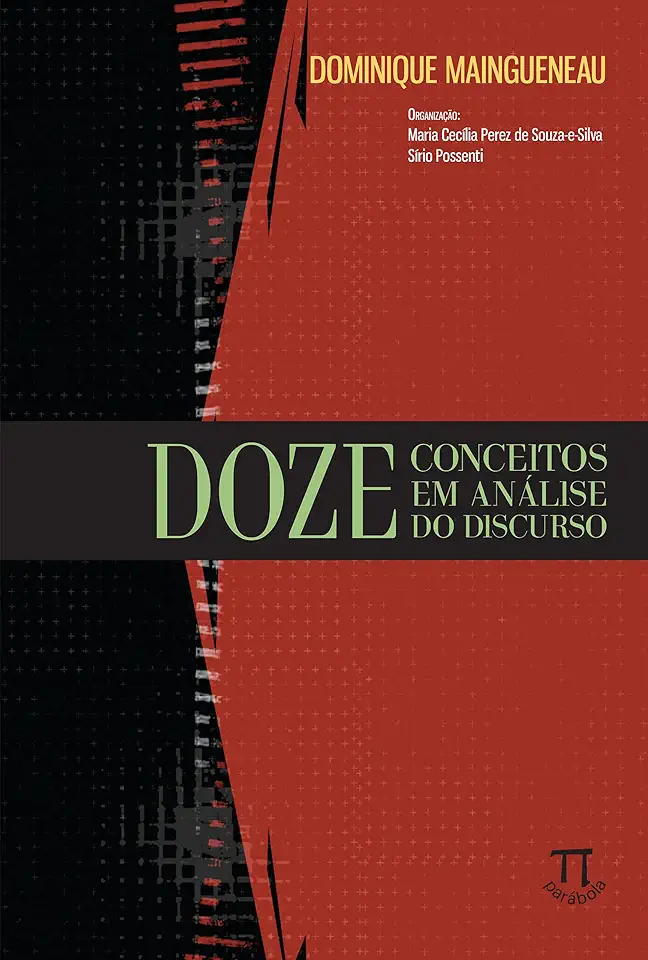
Twelve Concepts in Discourse Analysis - Dominique Maingueneau
Twelve Concepts in Discourse Analysis: A Comprehensive Guide to Analyzing Language in Context
Introduction
In today's world, effective communication is more important than ever. Whether you're a student, a professional, or simply someone who wants to better understand the world around you, having a strong grasp of discourse analysis is essential.
Discourse analysis is the study of how language is used in social contexts. It examines the ways in which language shapes and is shaped by our interactions with others, and how it reflects and influences our social and cultural norms.
In his book, "Twelve Concepts in Discourse Analysis," Dominique Maingueneau provides a comprehensive and accessible introduction to this complex field. Drawing on a wide range of examples from everyday life, Maingueneau explores twelve key concepts that are essential for understanding discourse analysis.
The Twelve Concepts
- Discourse: Maingueneau begins by defining discourse as "a socially situated language use." He argues that discourse is not simply a collection of words, but rather a complex social phenomenon that is shaped by the context in which it occurs.
- Text: Maingueneau then discusses the concept of text, which he defines as "a verbal or written document that is produced by a speaker or writer and that is intended to be understood by a reader or listener." He argues that texts are not simply containers of information, but rather complex social objects that are shaped by the intentions of their creators and the expectations of their audiences.
- Context: Maingueneau emphasizes the importance of context in understanding discourse. He argues that discourse cannot be understood in isolation, but rather must be seen in relation to the social, cultural, and historical context in which it occurs.
- Intertextuality: Maingueneau discusses the concept of intertextuality, which refers to the ways in which texts are connected to other texts. He argues that texts are not isolated entities, but rather are part of a larger network of texts that are constantly referencing and responding to each other.
- Genre: Maingueneau explores the concept of genre, which refers to the different ways in which texts are organized and structured. He argues that genres are not simply arbitrary conventions, but rather reflect the social and cultural norms of the communities that produce them.
- Enunciation: Maingueneau discusses the concept of enunciation, which refers to the ways in which speakers and writers position themselves in relation to their audiences. He argues that enunciation is not simply a matter of individual expression, but rather is shaped by the social and cultural norms of the communities in which speakers and writers live.
- Polyphony: Maingueneau explores the concept of polyphony, which refers to the ways in which multiple voices and perspectives are represented in discourse. He argues that polyphony is not simply a matter of including different voices, but rather is a way of representing the complex and multifaceted nature of social reality.
- Ideology: Maingueneau discusses the concept of ideology, which refers to the ways in which language is used to promote particular social and political agendas. He argues that ideology is not simply a matter of conscious manipulation, but rather is a deeply embedded part of the way we think and talk about the world.
- Power: Maingueneau explores the concept of power, which refers to the ways in which language is used to control and influence others. He argues that power is not simply a matter of brute force, but rather is a complex and multifaceted phenomenon that is embedded in the way we communicate with each other.
- Critique: Maingueneau discusses the concept of critique, which refers to the ways in which discourse analysis can be used to challenge and subvert dominant social and political ideologies. He argues that critique is not simply a matter of negative criticism, but rather is a way of opening up new possibilities for social change.
- Methodology: Maingueneau concludes by discussing the different methodological approaches that can be used in discourse analysis. He argues that there is no one-size-fits-all approach, and that the best approach will vary depending on the specific research question being investigated.
- Conclusion: Maingueneau concludes by arguing that discourse analysis is a powerful tool for understanding the world around us. He argues that by understanding the ways in which language is used in social contexts, we can gain a deeper understanding of the social and cultural forces that shape our lives.
Why You Should Read This Book
"Twelve Concepts in Discourse Analysis" is an essential resource for anyone who wants to understand the complex and fascinating field of discourse analysis. Maingueneau's clear and concise writing style makes this book accessible to readers of all levels, and his wide range of examples from everyday life makes the concepts come alive.
Whether you're a student, a professional, or simply someone who wants to better understand the world around you, "Twelve Concepts in Discourse Analysis" is a must-read.